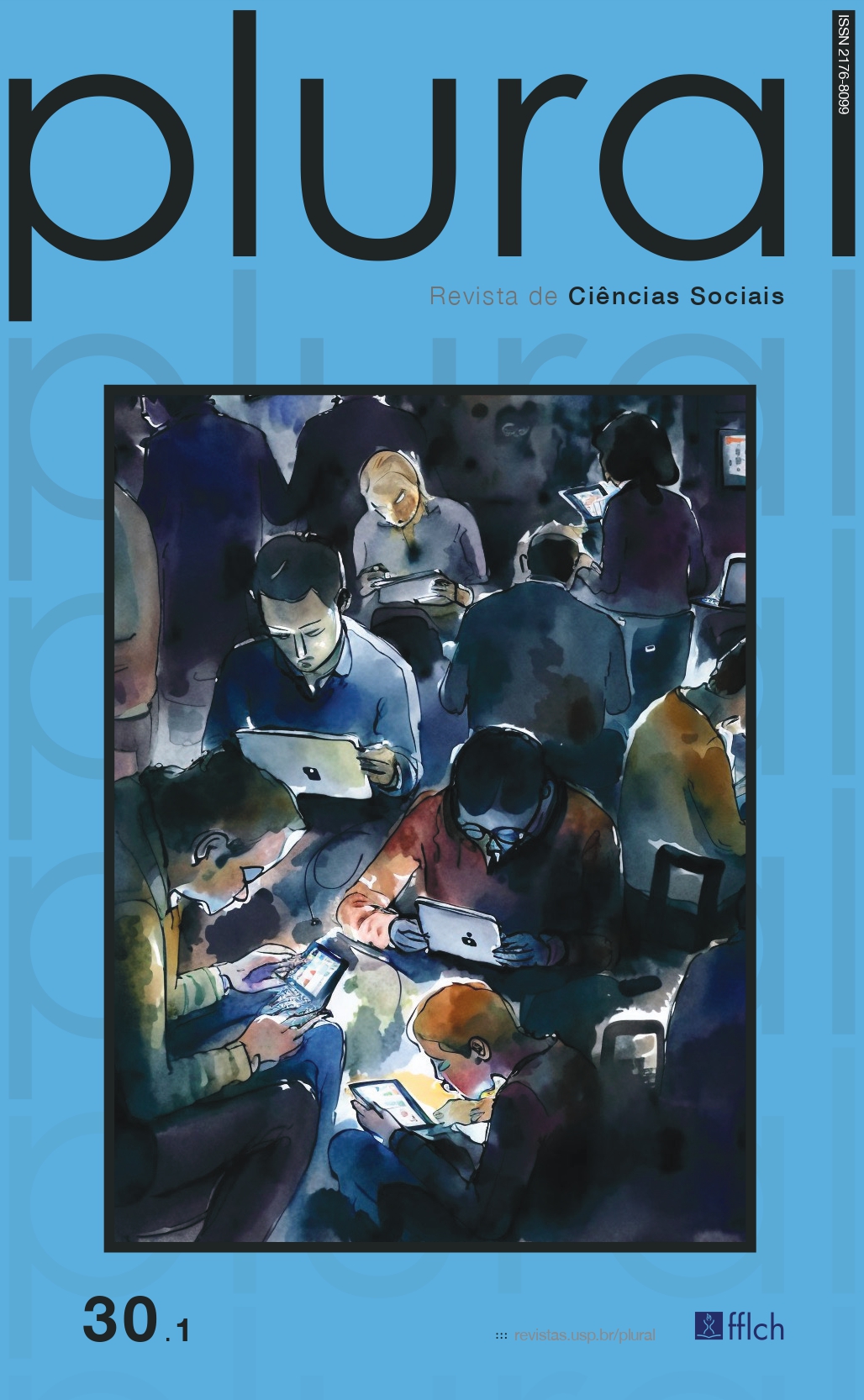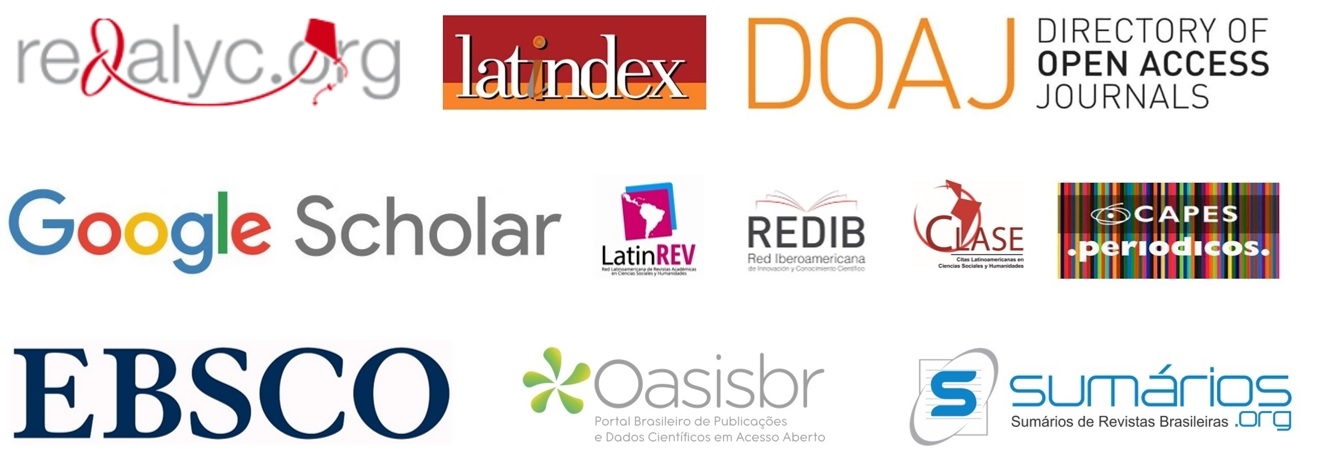Off/On: la construcción de la identidad virtual a través de la socialización por videojuegos y la producción de nuevas relaciones sociales en los márgenes de lo virtual y lo no virtual
DOI:
https://doi.org/10.11606/issn.2176-8099.pcso.2023.205659Palavras-chave:
videojuegos, identidad virtual, socialización virtual, world of warcraft, etnografía virtualResumo
Este artículo nos invita a pensar sobre relaciones entre lo off-line-online en varias dimensiones: capacidad de agencia, socializaciones, identidades y qué es lo virtual/real. A través de un análisis del videojuego World of Warcraft y parte de su comunidad intentamos comprender como funciona su espacio social virtual, cuáles son las reglas que posee este espacio, de qué manera los videojugadores conforman su propia identidad virtual, y como dialogan y tensión a lo off y lo online. A través de entrevistas semi-estructuradas y observación participante virtual se recogen datos que pretenden ilustrar la argumentación respecto a las nuevas formas de construir la socialización y las relaciones sociales, y como deambulan desde lo superficial a lo más significativo, en un eje, y desde lo virtual a no virtual, en otro eje. Esto último lleva a discutir el carácter “virtual”, en tanto opuesto de lo “real”, ya que es “real”, al fin y al cabo, y más bien nos lleva a considerar a lo off y a lo on-line como distintas dimensiones donde se estructura lo social. Ponemos atención a las tensiones entre la identidad propia off/on y a su vez, la identidad de otros off/on, lo que puede conducir a “rehumanizar” la identidad on-line y a “deshumanizar” la off-line, debido la posibilidad cierta de mostrarse agresivos frente al otro, y ese otro es un todo off/on.
Downloads
Referências
ACEVEDO, Álvaro; MAYA, Natalia (2016). Difusión de realidades: Comunidades virtuales presentes en los videojuegos de rol en línea (Caso Aguabrial-Dofus – Periodo 2012- 2013). Education in the Knowledge Society, 17 (2), 133-148.
ANDRÉU ABELA, Jaime (2000). Las técnicas de análisis de contenido: una revisión actualizada. Fundación Centro Estudios Andaluces, Universidad de Granada, 10 (2), 1-34.
BARAB, Sasha; DUFFY, Thomas (2000). From Practice Fields to Communities of Practice. In JONASSEN, D. H.; LAND, S. M. (eds) (2000). Theoretical Foundations of Learning Environments. Mahwah: Lawrence Erlbaum Associates, 25-55.
BECKERT, Jens (2016). Imagined futures: Fictional expectations and capitalist dynamics. Massachusetts, Harvard University Press.
BELLI, Simone; LÓPEZ, Cristian (2008). Breve historia de los videojuegos. Athenea Digital. Revista de pensamiento e investigación social, (14), 159-179.
EGUIA-GÓMEZ, José Luis; CONTRERAS-ESPINOSA, Ruth; SOLANO-ALBAJES, Lluís (2012). Videojuegos: Conceptos, historia y su potencial como herramienta para la educación. TIC: cuadernos de desarrollo aplicados a las TIC, 1 (2), 4.
GOFFMAN, Erving (2001). La presentación de la persona en la vida cotidiana, Buenos Aires, Ediciones Amorrortu.
GROSSETTI, Michel (2009). ¿Qué es una relación social?: Un conjunto de mediaciones diádicas. Redes: revista hispana para el análisis de redes sociales, 6 (2), 44-62.
HINE, Christine (2008). Virtual ethnography: Modes, varieties, affordances. SAGE Publications, Ltd, https://doi.org/10.4135/9780857020055.
KAWULICH, Barbara (2006). La observación participante como método de recolección de datos. Forum: Qualitative Social Research [On-line Journal], 6 (2), Art. 43. http://www.qualitativeresearch.net/fqs.
LARRAÍN, Jorge (2003). O conceito de identidade. Revista FAMECOS, 10 (21), 30-42. LUPTON, Deborah (2014). Digital sociology. New York, Routledge.
MARCANO, Beatriz (2011). Características sociológicas de videojugadores online y el e-sport. El caso de Call of duty. Pedagogía Social. Revista Interuniversitaria, 19, 113-124.
MARRES, Noortje (2017). Digital sociology: The reinvention of social research. Cambridge, Policy Press.
MARTÍNEZ-SALGADO, Carolina (2012). El muestreo en investigación cualitativa: principios básicos y algunas controversias. Ciência & Saúde Coletiva, 17 (3), 613-619.
MUROS, Beatriz (2011). El concepto de identidad en el mundo virtual: el yo online. Revista Electrónica Interuniversitaria de Formación del Profesorado, 14 (2), 49-56.
PORTILLO, Jesús (2016). Planos de realidad, identidad virtual y discurso en las redes sociales. Logos: Revista de Lingüística, Filosofía y Literatura, 26 (1), 51-63.
QUIROZ, María; TEALDO, Ana (1996). Los videojuegos y los niños peruanos: tiempo libre y procesos de socialización. Estudios sobre las Culturas Contemporáneas, 2 (4), 95-123.
RHEINGOLD, Howard (1993). The Virtual Community: Homesteading on the Electronic Frontier. Reading, Addison-Wesley.
RIESGO-GÓMEZ, Victor (2020). Nuevas formas de consumo 3.0. El retorno del sujeto al algoritmo. Teknokultura, 17 (1), 3-11.
RUÍZ, Kevin; QUEZADA-TELLO Laddy; IÑIGUEZ-PARRA, Gabriel (2019). Comunidades.
virtuales (fandoms) de videojuegos y su interacción: League of Legends Ecuador. Cumbres, 1 (5), 83–98.
SÁNCHEZ, David (2015). Evolución histórica y contexto social del videojuego en el sector audiovisual. Preproducción, producción y postproducción de un videojuego a través de software libre profesional. Tesis, Universidad de Extremadura, España.
STRAUSS, Anselm; CORBIN, Juliet (2016). Bases de la investigación cualitativa: técnicas y procedimientos para desarrollar la teoría fundamentada. Medellin, Editorial Universidad de Antioquia.
VALIENTE, Francisco (2004). Comunidades virtuales en el ciberespacio. Doxa Comunicación. Revista interdisciplinar de Estudios de Comunicación y Ciencias Sociales, (2), 137-150.
WELLMAN, Barry; BOASE, Jeffrey; CHEN, Whenhong (2002). The networked nature of community: online and offline. IT & Society, 1 (1), 151-165.
Publicado
Edição
Seção
Licença
Copyright (c) 2023 Política de direitos compartilhados

Este trabalho está licenciado sob uma licença Creative Commons Attribution-NonCommercial-ShareAlike 4.0 International License.
Ao submeter seu trabalho à Plural, o autor concorda que: o envio de originais à revista implica autorização para publicação e divulgação, ficando acordado que não serão pagos direitos autorais de nenhuma espécie. Uma vez publicados os textos, a Plural se reserva todos os direitos autorais, inclusive os de tradução, permitindo sua posterior reprodução como transcrição e com devida citação de fonte. O conteúdo do periódico será disponibilizado com licença livre, Creative Commons - Atribuição NãoComercial- CompartilhaIgual –, o que quer dizer que os artigos podem ser adaptados, copiados e distribuídos, desde que o autor seja citado, que não se faça uso comercial da obra em questão e que sejam distribuídos sob a mesma licença (ver: http://www.creativecommons.org.br/).







